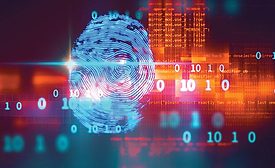Technologies & Solutions
Attack surface management is critical but few organizations do it well
Organizations mostly monitor what they already know about, leaving unknown assets unprotected and open to attackers
December 4, 2020
Sign-up to receive top management & result-driven techniques in the industry.
Join over 20,000+ industry leaders who receive our premium content.
SIGN UP TODAY!Copyright ©2024. All Rights Reserved BNP Media.
Design, CMS, Hosting & Web Development :: ePublishing












